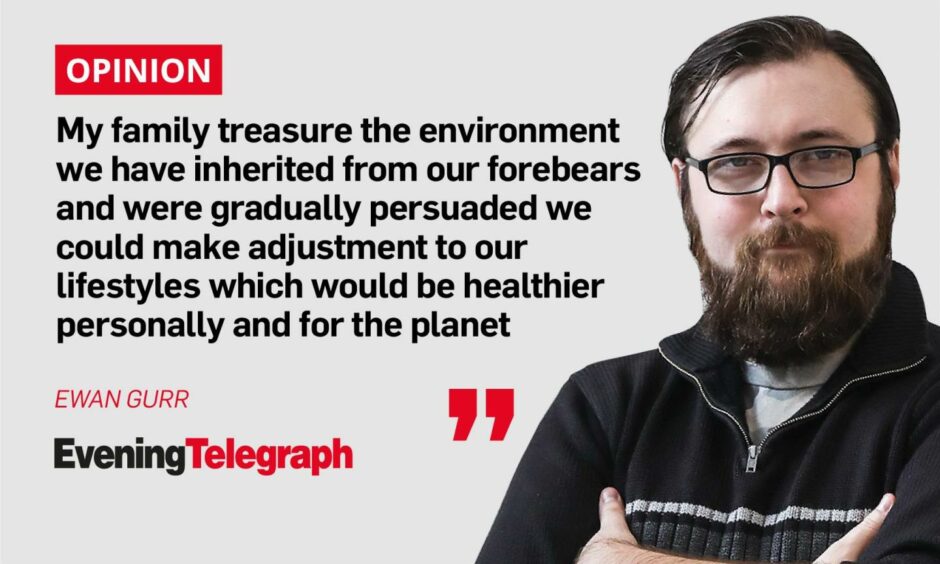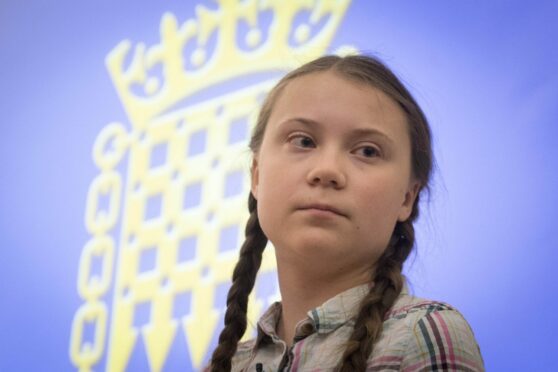On Sunday, global leaders will come together in Glasgow for the opening of the COP26 climate change conference.
It remains to be seen whether this momentous gathering will unweave the international tapestry of industrial inequality.
It is unclear whether two of the world’s biggest net-exporters – China and Russia – will even attend.
Media sources now describe climate change in terms of a “crisis” or “emergency”.

The Guardian’s front page coverage of the Intergovernmental Panel on Climate Change (IPCC) report in August portrayed a picture of a despairing woman on the Greek island of Evia, ravaged by wildfires, and an editorial linking the two phenomena.
One UN chief described the report as a “code red” warning for humanity.
Climate action begins at home
My family have always sought to be faithful custodians of creation.
We treasure the environment we have inherited from our forebears and were gradually persuaded we could make adjustment to our lifestyles which would be healthier personally and for the planet.
Scientists issue a climate code red https://t.co/3m3okll4qL
— The Guardian (@guardian) August 11, 2021
Maintaining plant-based diets, avoiding car ownership, shopping locally and growing vegetables helps limit our annual CO2 emissions.
Others are choosing to abandon family life altogether.
In The Spectator, Madeleine Kearns reported many ecologically-paralysed millennials are putting the planet before parenthood, despite the fact life prospects for children are greater than at any other historical point
Another writer Tom Woodman wrote: “Humans are making the planet uninhabitable. Why would we want to bring another human being into the world?”
Despair won’t help us at COP26
In case you are beginning to lose hope, stay with me.
There are other voices in the debate, such as Bjørn Lomborg – a lifelong environmentalist and the Danish Government’s former Environment Assessment Institute director.
Regarded as “a lukewarmer” on climate change, he is best known for his controversial 2001 book The Skeptical Environmentalist and his belief that “man-made global warming is real – it just isn’t the end of the world.”
“We are not on the brink of extinction,” he says. “In fact, quite the opposite.”
UN routinely warns us that we have just a few years left until catastrophe:
In 1972, half a century ago, Maurice Strong, first UN Environment Programme director warned that
the world had just 10 years to avoid catastrophehttps://t.co/W7mxpVeXJd pic.twitter.com/Ve4QEoWmPa
— Bjorn Lomborg (@BjornLomborg) August 8, 2021
Lomborg says climate change is real but it is a long-term condition like diabetes.
It is a problem that needs attention and focus, but one we can live with.
“While we manage it, we can live our lives and address the many that ultimately will matter much more for the future,” he says.
“We have it within our power to make a better world. But first, we need to calm down.”
Climate scare tactics put people off
Most genuine people are open to persuasion on most issues.
However, the actions of Extinction Rebellion activists and the even more deranged exploits of the new Insulate Britain, who have gone as far as preventing ambulances transporting ill patients to hospital, are doing little to advance the argument.
To the contrary, they make the jobs of genuine environmentalists a great deal harder.
Apocalyptic environmental claims did not persuade my family to alter our lives.
Nor were we swayed by the hectoring and moralising of a 16-year-old truant school child at the 2019 UN Climate Action Summit in New York.
Instead of cultivating a climate of chaos around COP26, it would be good to hear more coherence and nuance in the discourse surrounding the environment.
